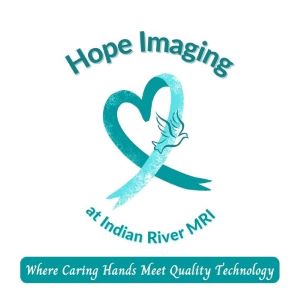Low Dose Chest CT
Hope Imaging Center - Vero Beach, FLWhat is a Low Dose Chest CT?
A computed tomography (CT) scan is helpful in screening for, diagnosing, staging and treating cancer. A CT is a type of X-ray that creates detailed image “slices” of organs, bones and other tissues. When compiled on a computer, these slices provide a high-quality, 3D picture of areas inside the body and allow your care team to detect small abnormalities.
As a form of X-ray, CT involves ionizing radiation. Although the amount of radiation from a CT scan isn’t much higher than radiation that comes from space and naturally occurring radioactive materials such as radon, even small amounts of exposure may increase the risk of future cancers.
As a result, when ordering a CT scan, your doctor may request that technicians use the lowest dose possible to achieve the necessary results. Sometimes, too, your doctor may specifically order a low-dose CT (LDCT), which—according to the U.S. Food and Drug Administration—may be adjusted to as much as five times lower the amount of radiation than what the body absorbs from a full-dose or regular CT scan.
According to the Agency for Healthcare Research and Quality:
- An LDCT scan provides 1.4 millisieverts (mSv) of radiation (the scientific unit for measuring ionizing radiation).
- A regular diagnostic CT scan provides 7 mSv.
- The average background radiation a person may be exposed to in a year in the United States is 3 to 5 mSv.
Preparing for your Low Dose CT Scan
There are two types of CT scans—those done with contrast, and those done without contrast. Your preparation instructions will be different depending on which type of CT scan you are scheduled to have.
If you are scheduled to have a CT scan without contrast, there is no special preparation before your exam. Unless otherwise directed by your physician, you may continue to take medication and eat as you normally would.
If you are scheduled to have a CT scan with contrast, you may need to follow special instructions but not all contrast studies require a fast or oral contrast.
If you do have special instructions they may include:
- Do not eat or drink for 4 hours before your CT scan
- Arrive 2 hours before your scheduled CT scan to drink a special liquid that will help the technologist see your stomach and bowels
- Have blood tests performed several days before your CT scan, if your physician requires them
- NOTE: If you are pregnant or think you might be pregnant, it is very important that you tell your imaging technologist before your CT scan starts. Exposure to radiation can be harmful to an unborn baby.
- You should come to the imaging facility wearing comfortable, loose-fitting clothes that do not have any metal snaps or buttons.
- Before your CT scan starts, our imaging technologists will ask you questions about your health and surgical history. You will also have an opportunity to ask our imaging staff any questions that you may have about the procedure.
